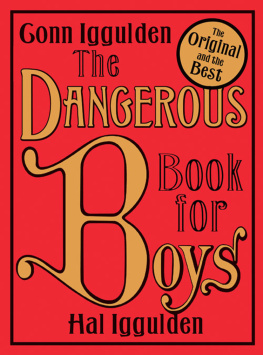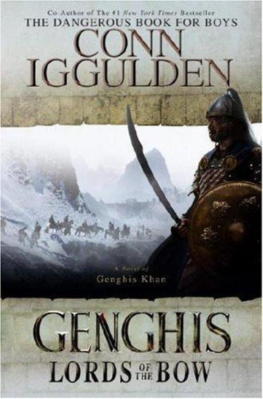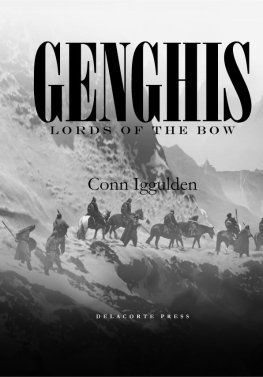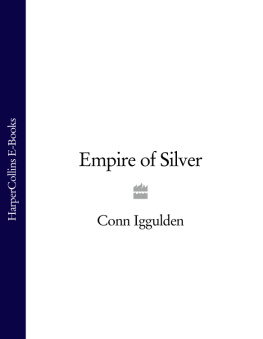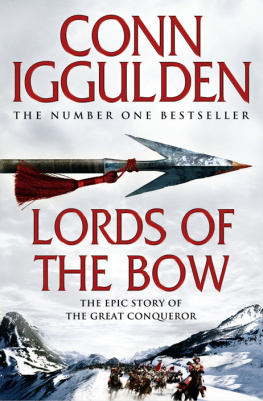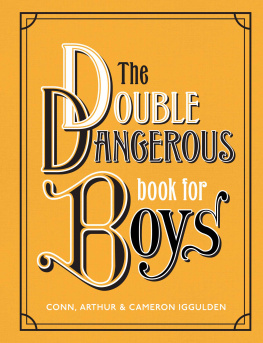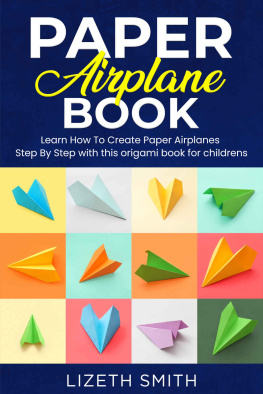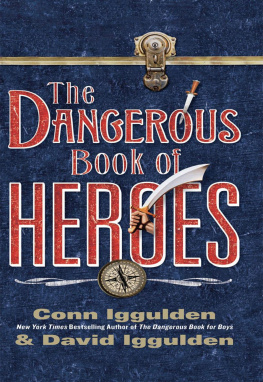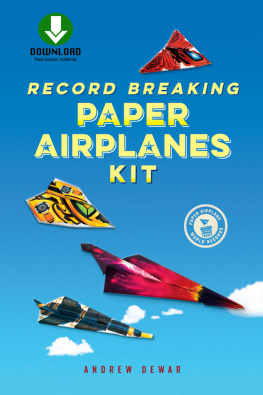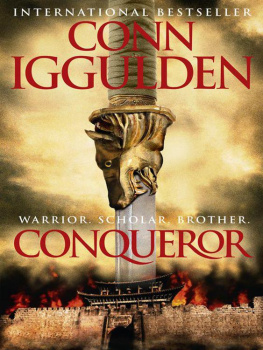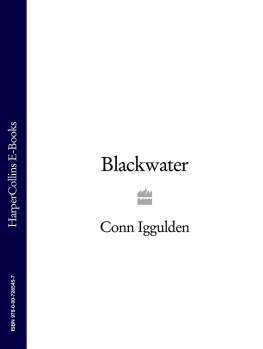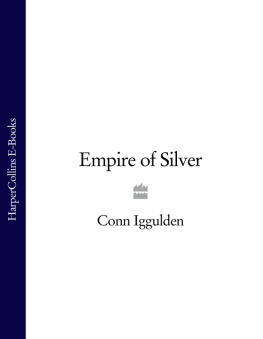
To all of those people who said You have to include until we had to avoid telling anyone else about the book for fear of the extra chapters. Particular thanks to Bernard Cornwell, whose advice helped us through a difficult time and Paul DUrso, a good father and a good friend.
Dont worry about genius and dont worry about not being clever. Trust rather to hard work, perseverance, and determination. The best motto for a long march is Dont grumble. Plug on.
You hold your future in your own hands. Never waver in this belief. Dont swagger. The boy who swaggers like the man who swaggers has little else that he can do. He is a cheap-Jack crying his own paltry wares. It is the empty tin that rattles most. Be honest. Be loyal. Be kind. Remember that the hardest thing to acquire is the faculty of being unselfish. As a quality it is one of the finest attributes of manliness.
Love the sea, the ringing beach and the open downs.
Keep clean, body and mind.
Sir Frederick Treves, Bart, KCVO, CB, Sergeant in Ordinary to HM the King, Surgeon in Ordinary to HRH Prince of Wales, written at 6 Wimpole Street, Cavendish Square, London, on 2 September 1903, on the occasion of the twenty-fifth anniversary of the Boys Own Paper

I n this age of video games and mobile phones, there must still be a place for knots, treehouses and stories of incredible courage. The one thing that we always say about childhood is that we seemed to have more time back then. This book will help you recapture those Sunday afternoons and long summers because theyre still long if you know how to look at them.
Boyhood is all about curiosity and men and boys can enjoy stories of Scott of the Antarctic and Joe Simpson in Touching the Void as much as they can raid a shed for the bits to make an electromagnet, or grow a crystal, build a go-cart and learn how to find north in the dark. Youll find famous battles in these pages, insects and dinosaurs as well as essential Shakespeare quotes, how to cut flint heads for a bow and arrow and instructions on making the best paper aeroplane in the world.
How do latitude and longitude work? How do you make secret ink, or send the cipher that Julius Caesar used with his generals? Youll find the answers inside. It was written by two men who would have given away the cat to get this book when they were young. It wasnt a particularly nice cat. Why did we write it now? Because these things are important still and we wished we knew them better. There are few things as satisfying as tying a decent bowline knot when someone needs a loop, or simply knowing what happened at Waterloo and the Somme. The tales must be told and retold, or the memories slowly die.
The stories of courage can be read as simple adventures or perhaps as inspiration, examples of extraordinary acts by ordinary people. Since writing them, its been a great deal harder to hop about and curse when one of us stubs a toe. If you read Douglas Baders chapter, youll see why. Theyre not just cracking stories, theyre part of a culture, a part we really dont want to see vanish.
Is it old fashioned? Well that depends. Men and boys today are the same as they always were, and interested in the same things. They may conquer different worlds when they grow up, but theyll still want these stories for themselves and for their sons. We hope in years to come, that this will be a book to dig out of the attic and give to a couple of kids staring at a pile of wood and wondering what to do with it.
When youre a man, you realise that everything changes, but when youre a boy, you know different. The camp you make today will be there forever. You want to learn coin-tricks and how to play poker because you never know when the skills will come in handy. You want to be self-sufficient and find your way by the stars. Perhaps for those who come after us, you want to reach them. Well, why not? Why not?
Conn Iggulden and Hal Iggulden

I t isnt that easy these days to get hold of an old tobacco tin but they are just the right size for this sort of collection. One of the authors once took a white mouse into school, though considering what happened when he sat on it, that is not to be recommended. We think pockets are for cramming full of useful things.
1. Swiss army knife.
Still the best small penknife. It can be carried in luggage on planes, though not in hand luggage. It is worth saving up for a high-end model, with as many blades and attachments as you can get. That said, there are good ones to be had for 20. They are useful for jobs requiring a screwdriver, removing splinters and opening bottles of beer and wine, though this may not be a prime consideration at this time. Leather holders can also be purchased and the best ones come with a few extras, like compass, matches, pencil, paper and plasters.
2. Compass.
These are satisfying to own. Small ones can be bought from any camping or outdoor shop and they last for ever. You really should know where north is, wherever you are.
3. Handkerchief.
There are many uses for a piece of cloth, from preventing smoke inhalation or helping with a nosebleed, to offering one to a girl when she cries. Big ones can even be made into slings. Theyre worth having.
4. Box of matches.
It goes without saying that you must be responsible. Matches kept in a dry tin or inside a plastic bag can be very useful on a cold night when you are forced to sleep in a field. Dipping the tips in wax makes them waterproof. Scrape the wax off with a fingernail when you want to light them.
5. A taw.
Your favourite big marble.
6. Needle and thread.
Again, there are a number of useful things you can do with these, from sewing up a wound on an unconscious dog to repairing a torn shirt. Make sure the thread is strong and then it can be used for fishing.
7. Pencil and paper.
If you see a crime and want to write down a car number or a description, you are going to need one. Alternatively, it works for shopping lists or practically anything.
8. Small torch.
There are ones available for keyrings that are small and light. If you are ever in darkness and trying to read a map, a torch of any kind will be useful.
9. Magnifying glass.
For general interest. Can also be used to start a fire.
10. Plasters.
Just one or two, or better still, a piece from a cloth plaster roll that can be cut with penknife scissors. They probably wont be used, but you never know.
11. Fish-hooks.
If you have strong thread and a tiny hook, you only need a stick and a worm to have some chance of catching something. Put the hook tip into a piece of cork, or youll snag yourself on it.

I N THE 1950S , a secondary school headmaster found a boy throwing paper planes from a high window. The head was considering punishments when he noticed the plane was still in the air, flying across the playground below. The boy escaped a detention, but he did have to pass on the design to the schoolmaster who passed it on to his own children. You will find more complicated designs. You may be sold the idea that the best planes require scissors and lessons in origami. This is nonsense.
Next page
